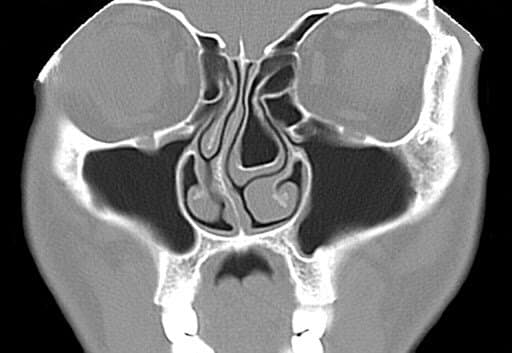Common Nasal Disorders Linked to Sinusitis
Sinus problems are a frequent reason people visit their healthcare provider. Many may not realize, however, that underlying nasal disorders often contribute significantly to the development or worsening of sinusitis. Understanding how various nasal conditions influence sinus health can help you recognize symptoms earlier, seek appropriate care, and support better overall respiratory wellness.
This article explains what nasal disorders are, describes their connection to sinusitis, outlines common types to be aware of, and reviews diagnosis and treatment options. We also include practical suggestions to help protect your nasal and sinus health over time.
What Are Nasal Disorders and How Do They Relate to Sinusitis?
Your nose does more than detect smells; it’s a key part of your respiratory system. The nasal passages warm, filter, and humidify air before it reaches your lungs. Inside the nose and in the sinus cavities, mucous membranes trap germs, dust, and other particles.
When these membranes become inflamed, irritated, or blocked, normal airflow and mucus drainage are disrupted. This can cause discomfort and increase the risk of infection.
Nasal disorders include a range of conditions affecting the nose’s anatomy or function. Symptoms typically involve congestion, blockage, swelling, or infection, which can create an environment where sinusitis—inflammation or infection of the sinus lining—may develop or worsen. Research indicates many sinusitis cases are connected to underlying nasal disorders such as structural abnormalities or chronic inflammation, making early detection and management important to prevent chronic problems.
For example, a person with a deviated septum—a crooked wall inside the nose—may develop frequent sinus infections because mucus cannot drain properly, leading to repeated inflammation.
Types of Common Nasal Disorders Linked to Sinusitis
Certain nasal disorders are more likely to affect sinus health. Below are some of the most common types, with typical examples and symptoms.
Allergic Rhinitis
Commonly known as "hay fever," allergic rhinitis occurs when the immune system overreacts to harmless substances like pollen, dust mites, or pet dander. This immune response causes swelling of the nasal lining, which can block sinus drainage and lead to pressure or infection.
Typical symptoms include:
- Persistent sneezing
- Itchy, runny nose, often seasonal
- Nasal congestion or stuffiness
- Watery, irritated eyes
For instance, a typical patient with allergic rhinitis might report, “Every spring, my nose runs constantly, and I feel pressure behind my eyes.” These symptoms often coincide with sinus discomfort.1
Chronic Sinusitis (With or Without Nasal Polyps)
Chronic sinusitis is defined as sinus inflammation lasting 12 weeks or longer despite treatment. It can cause ongoing congestion, headaches, facial pain, and fatigue.
Some patients develop nasal polyps—benign, soft, painless growths—that further block sinus drainage and trap mucus. This can result in a cycle of persistent infection and inflammation.
About 12% of the U.S. population experiences chronic sinusitis, underscoring its prevalence.3
Nasal Polyps
Within chronic sinus conditions, nasal polyps may enlarge gradually and cause:
- Nasal blockage and a feeling of fullness
- Sinus pressure and recurring headaches
- Reduced or lost sense of smell and taste
Polyps obstruct airflow and mucus flow, increasing infection risk.2
Deviated Septum
The septum divides the left and right nasal passages. When it is crooked or off-center, a condition known as a deviated septum, it narrows one side, obstructing airflow.
This structural irregularity—often congenital or resulting from injury—promotes mucus buildup and repeated sinus infections.
Clinicians note, “Patients with marked septal deviations frequently report chronic one-sided nasal congestion and frequent sinus infections unresponsive to standard treatments.”4
Fungal Sinusitis
In some cases, fungi rather than bacteria infect or irritate the sinuses, especially in people with weakened immune systems or long-standing allergies. This form, called fungal sinusitis, ranges from mild allergic reactions to severe infections requiring specialized care.
Risk factors include living in damp environments, chronic allergies, and immune disorders. Fungal sinusitis is uncommon and mainly affects those with underlying health conditions.3
How Nasal Disorders Affect the Sinuses
How do nasal problems lead to sinusitis? Key mechanisms include:
Nasal Obstruction and Blockage
Similar to a kinked garden hose, blocked or narrowed nasal passages caused by inflammation, polyps, or septal deviation prevent normal airflow and mucus drainage. This creates stagnant areas where germs can multiply.
Inflammation and Tissue Swelling
The body’s immune response to allergens or infection sends increased blood flow to the nasal and sinus linings, causing swelling that further blocks sinus drainage pathways and worsens congestion.
Increased Risk of Sinus Infections
Trapped mucus provides a breeding ground for bacteria, viruses, or fungi, resulting in acute or chronic sinus infections characterized by discomfort, headaches, and sometimes fever.
Symptoms to Watch For
Symptoms of nasal disorders often overlap but may include:
- Persistent or recurring nasal congestion
- Stuffy or blocked nose not improving with over-the-counter remedies
- Facial pain or pressure around the forehead, cheeks, or eyes
- Post-nasal drip (mucus running down the throat)
- Reduced or lost sense of smell or taste
- Headaches, fatigue, or difficulty sleeping
If symptoms persist beyond 10 days, worsen after initial improvement, or happen frequently, it is important to seek medical evaluation.
Diagnosis of Nasal Disorders and Sinusitis
Healthcare providers use several methods to diagnose nasal disorders and sinusitis accurately:
- Physical Examination: Doctors use instruments such as a nasal speculum or endoscope to inspect inside the nose for inflammation, polyps, or obstructions.
- Imaging: CT scans produce detailed sinus images to identify blockages, infections, or structural issues.
- Allergy Testing: This identifies allergic triggers causing symptoms and guides treatment.
- Laboratory Tests: If fungal sinusitis is suspected, cultures of nasal secretions may be obtained.
A thorough diagnosis helps determine the most effective treatment plan.
Treatment Options for Nasal Disorders and Sinusitis
Treatment varies depending on the nasal disorder and sinus involvement:
Medical Treatments
- Nasal corticosteroid sprays: Reduce inflammation and swelling in the nasal passages and sinuses.
- Antihistamines: Control allergy symptoms such as sneezing and runny nose.
- Nasal saline irrigation: Flushes out mucus and irritants gently.
- Antibiotics: May be prescribed for confirmed or suspected bacterial sinus infections but are ineffective against viral infections.
- Antifungal medications: Used for fungal sinusitis, requiring specialized management.
- Allergy immunotherapy (allergy shots): Help build long-term tolerance to allergens under specialist supervision and are not suitable for everyone.
Surgical Treatments
If medications and lifestyle changes are insufficient, surgery may be considered:
- Polypectomy: Removes nasal polyps to improve airflow and drainage.
- Septoplasty: Corrects a deviated septum to open nasal passages.
- Functional Endoscopic Sinus Surgery (FESS): Minimally invasive surgery to open blocked sinus pathways, relieving pressure and infection.
Lifestyle and Home Care Tips
Simple at-home practices can support nasal and sinus health:
- Avoid allergens and irritants such as cigarette smoke, strong perfumes, and pet dander.
- Use a humidifier in dry environments to keep nasal passages moist.
- Stay well hydrated to thin mucus naturally.
- Follow prescribed nasal spray regimens consistently.
- Attend regular healthcare appointments to monitor your condition.
Frequently Asked Questions (FAQs)
Can nasal disorders cause recurring sinus infections?
Yes. Allergies, nasal polyps, or a deviated septum can block normal sinus drainage, increasing the risk of repeated infections if not treated properly.
How can I tell the difference between a cold and sinusitis related to nasal disorders?
Colds typically resolve within 7 to 10 days. Sinusitis symptoms often last longer than 10 days, worsen after initial improvement, or involve facial pain/pressure and thick nasal discharge, especially if a nasal disorder is present.
Are nasal polyps cancerous?
No. Nasal polyps are benign growths but can cause chronic symptoms and increase infection risk.
When is surgery necessary for nasal disorders?
Surgery is usually considered when symptoms persist despite medical treatment or when structural issues—such as large polyps or severe septal deviation—cause ongoing problems.
Can lifestyle changes help improve nasal and sinus health?
Yes. Avoiding allergens, maintaining hydration, and adhering to your treatment plan can significantly improve outcomes.
Conclusion
Common nasal disorders—including allergic rhinitis, nasal polyps, deviated septum, and fungal sinusitis—not only affect breathing comfort but also create conditions that promote sinusitis and recurrent infections. Recognizing symptoms early and working with your healthcare provider to develop a personalized treatment plan are essential to maintaining healthy sinuses and clear breathing.
Understanding these nasal conditions and their link to sinusitis empowers you to take proactive steps toward respiratory health. If you experience ongoing nasal congestion, persistent sinus infections, or related symptoms, consult a qualified healthcare provider promptly to begin appropriate evaluation and care.
References
- University of Michigan Health System: Sinusitis
- Cleveland Clinic: Sinusitis
- Mayo Clinic: Chronic Sinusitis
- Oregon Health & Science University (OHSU)
For comprehensive information about nasal disorders and sinus health, consult your healthcare provider or visit a trusted medical center. Do not hesitate to seek professional evaluation if you notice symptoms described here.
If you suffer from nasal congestion or recurrent sinus infections, consider scheduling an appointment with an ENT specialist to receive personalized assessment and treatment.
Disclaimer:
This article is for educational purposes only and is not medical advice. Please consult a qualified healthcare provider for diagnosis and treatment.
Don’t let allergies slow you down. Schedule a comprehensive ENT and allergy evaluation at Sleep and Sinus Centers of Georgia. We’re here to find your triggers and guide you toward lasting relief.





